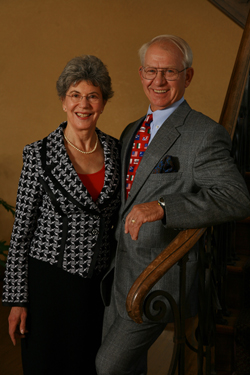FREE’s Mission
FREE’s mission is to imagine and implement an economic way of thinking consistent with a society of free and responsible individuals. Our nation’s Founders envisioned social cooperation and value creation fostered through the rule of law, secure property rights, and the market process, not centralized command and control. FREE’s seminars target important opinion leaders in public policy arenas, most notably regarding environmental issues. FREE’s focus is on the broad conjunction of economics, ethics, and the natural and human environment. Using basic concepts from economics, science, and risk analysis, we explain how the application of these analytic tools can foster sound environmental and other public policies and advance social well-being.
What We Do
FREE conducts seminars, writes and edits books, and publishes opinion columns. We use economics and scientific analysis to generate and explore innovative solutions to environmental problems. Our target audiences are important decision makers and opinion leaders. For over twenty years we have held seminars for Article III federal judges, and law and economics professors. (See Judge Ray Randolph's Litigation article, "Private Judicial Seminars: A Reply to Abner Mikva".)
The past few years, our seminar offerings have been directed toward religious leaders and social entrepreneurs.
While our seminars are explicitly pro-environment, they explain why ecological values are not the only important ones. We stress that trade-offs among competing values are inescapable. We show why it is ethically and materially irresponsible to pretend such choices can be avoided.
Program Objectives
- describe how incentives and voluntary cooperation can be used to protect and enhance environmental values while fostering economic prosperity
- show how the application of economics and science to public policy provides insights that advance the public interest
- explain the importance of secure property rights and economic freedom to the efficient and sensitive use of environmental resources
- examine the dangers of legislating "risk-free" laws and make explicit the linkages among science, risk analysis, and economics
History
Founded by current Chairman John Baden in 1985, FREE has its roots in the Center for Political Economy and Natural Resources, which Baden established at Montana State University in 1978.
Much of the pioneering work on the “New Resource Economics” was done by Center personnel. Using public choice economics, they critiqued prevailing natural resource management systems. Sorry results were explained not as aberrations, but rather as the predictable consequences of incentives and institutional arrangements.
This work was quite straightforward and widely accepted within the economics profession. Several future Nobel Prize winners became interested in the Center’s work and paid occasional visits to Montana. It was an exhilarating time. However, some were not pleased with this success.
Some commodity groups were outraged that "their" University would harbor these outspoken critics of crony capitalism. And a generation ago, many Greens had more than a tinge of pink. They were livid that a bunch of libertarian economists had trespassed into their domain and claimed the intellectual, ethical, and ecological environmental high ground.
Federal bureaucracies, such as the Forest Service, were irate that they, the apostles of "scientific management" (and supporters of university research), were attacked with solid data on government malfeasance and causal models explaining it: incentive structures that lead agency budget maximization to trump the public interest.
External pressure on the Center and the University grew and eventually the program fell casualty to academic politics. (You can find a 1982 peer review of the Center’s work by Professors M. Bruce Johnson and Vernon W. Ruttan here.) Baden left MSU in 1982 to found the Political Economy Research Center (PERC), of which he was Chairman until creating FREE in 1985. PERC, now known as the Property and Environment Research Center, and FREE have no formal relationship.
FREE has consistently fought corporate subsidies (see Baden's WSJ article, “A Welfare Act for U.S. Oil”) fostering exploitation and strongly advocates such efforts as wolf reintroduction to the federal lands of the West. The intellectually naïve confuse FREE’s classical liberal, pro-market process orientation with that advocated by supporters of a subsidized, pro-business position that exploits the environment (e.g., below-cost timber sales on the national forests).
Please email us at: ofdesk@free-eco.org if you would like to request a copy of FREE's 990.
External Links
These links are being provided as a convenience and for informational purposes only; they do not constitute an endorsement by the Foundation for Research on Economics & the Environment.
- Acton
- American Enterprise Institute
- Alliance of Religion and Conservation
- Atlas Network
- The Breakthrough Institute
- The Brookings Institution
- The Cato Institute
- Christians For The Mountains
- Fee International
- Heartland Institute
- Heritage Institute
- The Independent Institute
- The Mercatus Center
- National Center For Policy Analysis
- Real Clear Politics
- The Independent Institute
- Government Cost Calculator

